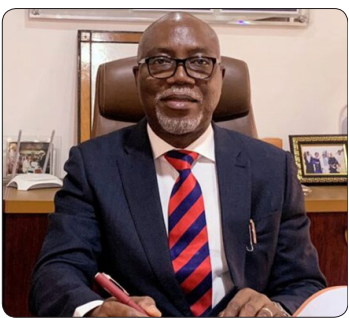By Ifeanyi Uwagwu
The Ondo State governorship election, held on 16 November 2024, drew attention across Nigeria as a litmus test for the country’s democratic process. With over two million registered voters and 17 candidates vying for office, the stakes were high. The election culminated in the re-election of Lucky Aiyedatiwa of the All Progressives Congress (APC), who triumphed over his rivals by securing a total of 366,781 votes and winning in all 18 local government areas.
However, the process was far from seamless. It was marked by a mix of commendable efforts, significant challenges, and widespread allegations of malpractice. This article examines the key elements of the election and their implications for the future of democracy in Nigeria.
A Political Showdown with High Stakes
The 2024 governorship election was unique in many ways. Lucky Aiyedatiwa, who had taken over the governorship after the death of Rotimi Akeredolu in 2023, sought a full term to continue his administration’s vision. His main challenger, Agboola Ajayi of the Peoples Democratic Party (PDP), aimed to unseat the APC in a fiercely contested race.
While the election concluded with Aiyedatiwa declared the winner, the opposition criticised the process. Agboola Ajayi accused INEC of bias, claiming the election was marred by vote buying and intimidation. The PDP called the results a “sham,” alleging widespread electoral manipulation, while the APC dismissed these allegations, stating the PDP was grappling with its diminishing influence.
This polarisation underscores the challenges Nigeria faces in building trust in its electoral process.
Security and Technology: Progress Amid Challenges
The election’s security arrangements were extensive. The deployment of over 22,000 police officers, supported by the Nigerian Security and Civil Defence Corps (NSCDC) and military personnel, ensured a relatively calm environment. However, incidents of violence, including ballot box snatching and clashes between party supporters, were reported in Idanre and Odigbo LGAs.
On the technological front, INEC’s deployment of the Bimodal Voter Accreditation System (BVAS) and IReV showed significant improvements in voter accreditation and result transmission. Observers noted a 78.4% efficiency rate in BVAS functionality, with swift resolutions to technical glitches. However, issues such as delayed accreditation and failure to display Form EC60E in some polling units highlighted areas needing further improvement.
The combined efforts of security agencies and technological advancements show progress, but gaps remain that could erode public trust if not addressed.
Vote Buying and Electoral Malpractices
One of the most troubling aspects of the election was the prevalence of vote trading. Despite the presence of anti-corruption agencies, reports of cash distribution at polling units persisted. Arrests were made, including one involving a suspect caught with bags of money allegedly meant for vote buying.
This pervasive issue undermines the credibility of elections and highlights the need for stricter enforcement of electoral laws. The allegations of vote buying also feed into broader concerns about the commodification of votes and the erosion of democratic values.
Voter Apathy and Democratic Engagement
Despite a high rate of Permanent Voter Card (PVC) collection, the election saw a low turnout of just 24.8%. This reflects growing voter apathy, driven by disillusionment with the political class and perceptions that elections are predetermined.
In Ondo Central, despite an 81% PVC collection rate, turnout was only 19%. Ondo South, with a 90% collection rate, recorded 26% turnout, while Ondo North, with 87% PVC collection, saw the highest turnout at 31%.
This trend raises questions about the inclusivity and legitimacy of Nigeria’s electoral process. For democracy to thrive, there must be a concerted effort to re-engage citizens and restore faith in the electoral system.
The Broader Implications
The Ondo election serves as a microcosm of Nigeria’s electoral landscape—an interplay of progress and persistent challenges. While the improvements in security and technology are commendable, the prevalence of vote buying and voter apathy underscore the urgent need for reforms.
To strengthen democracy, Nigeria must address these systemic issues through enhanced voter education, stricter enforcement of electoral laws, and increased accountability for political actors. The Ondo experience highlights both the strides Nigeria has made and the hurdles that remain in the journey towards a more inclusive and credible democratic process.
As Lucky Aiyedatiwa prepares to take the reins for a full term, the onus is on his administration and other stakeholders to address the socioeconomic and political factors that fuel disenchantment. Only then can Nigeria’s democracy truly fulfil its promise of representing the will of the people.


